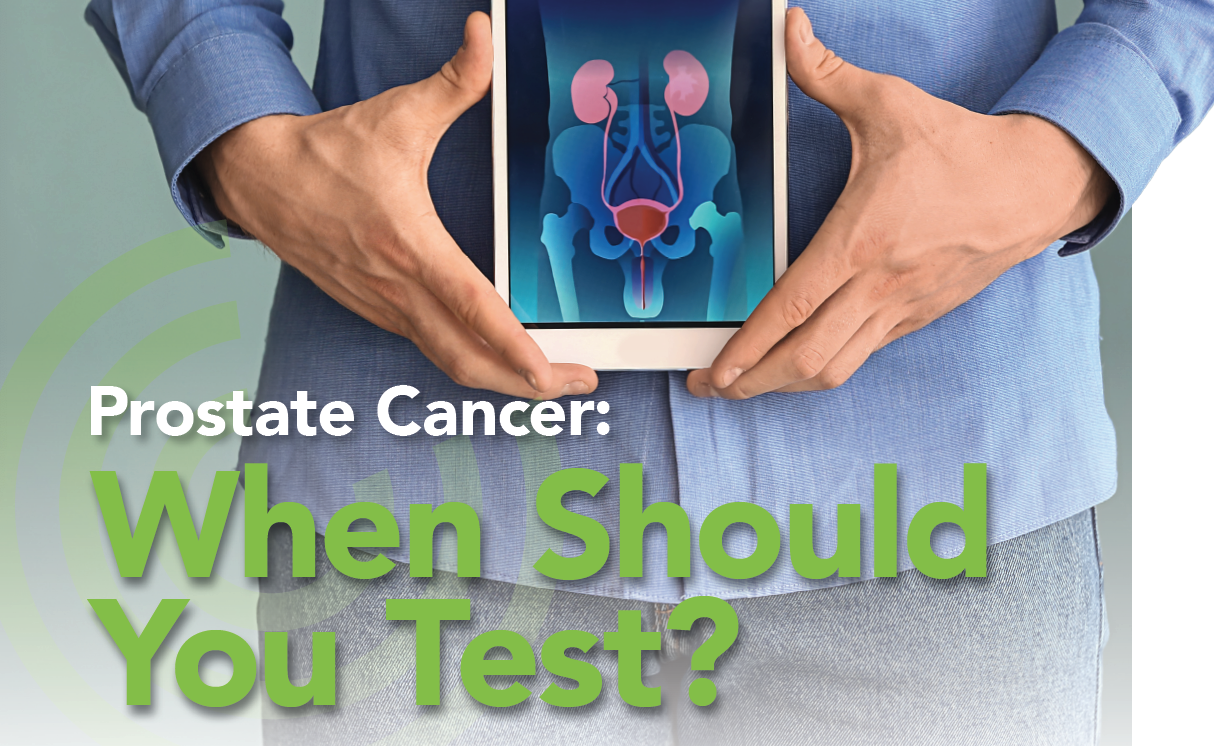

Prostate cancers tend to grow slowly. Some tumors never become a problem, but this is not always the case. One monitoring tool is a blood test for prostate-specific antigen, or PSA.
PSA is released into the bloodstream from cells in the prostate, a walnut-sized gland that makes seminal fluid for carrying sperm. Elevated PSA levels can mean cancer is present. Ejaculation can temporarily increase PSA, so avoid it before any PSA test. A digital rectal exam is also used to check for prostate cancer.
Early-stage disease usually has no symptoms, but they can show up later. Symptoms include:
Having to pee more often, especially at night, or straining to empty your bladder;
Blood in your urine or seminal fluid;
New onset of erectile dysfunction;
Discomfort or pain when sitting (caused by an enlarged prostate);
Pain or burning during urination (less common).
Other symptoms can occur if cancer has spread beyond the prostate gland.
Should you get screened if you have no symptoms? There’s no easy answer, because tumor growth is hard to predict. Discuss your risks with your doctor.
If Your PSA is Elevated
An elevated PSA reading does not necessarily mean cancer is present. Elevated PSA readings can also mean:
Prostatitis (inflammation of the prostate)
Benign prostatic hyperplasia (BPH, or enlargement of the prostate)
Urinary tract infection (UTI)
A prostate biopsy or prostate surgery can also cause elevated readings. Your doctor may recommend another PSA test to confirm the original finding, as well as continued monitoring.
How Do Vitamin Supplements Affect Prostate Cancer Risk?
The National Cancer Institute has found that some supplements increase a man’s risk of developing prostate cancer. These supplements include:
Vitamin E when taken alone. That risk remained even after men discontinued the supplement.
Dairy and calcium, taken in high amounts, may cause a small increase in prostate cancer risk.
Folic acid, an artificial form of folate, increased risk when taken in 1-milligram supplements.
However, prostate cancer risk was lower in men whose diet contained enough folate, which occurs naturally in green vegetables, beans, and orange juice.
Regular use of multivitamins has not been shown to increase prostate cancer risk, but a large study showed an increased risk of advanced prostate cancer among men who took multivitamins more than seven times a week.
What to Do After Diagnosis
Treatment options for prostate cancer include:
Monitoring only, especially for early stage, slow-growing prostate cancer.
Surgery and/or radiation therapy (external beam or brachytherapy, the insertion of radioactive seeds).
Hormone therapy (androgen deprivation therapy or ADT), especially if the tumor is large or cancer is more likely to return.
Chemotherapy or immunotherapy if prostate cancer no longer responds to ADT.
Side effects may include incontinence, bone pain and weakness, and sexual problems, but these can often be prevented or managed.
RBOI’s support services are available to the community free of charge, from before diagnosis through treatment and afterward, regardless of where you are being treated. Give us a call.
Did You Know?
Prostate cancer is the most common cancer (after skin cancer) and the second leading cause of cancer death (after lung cancer) among U.S. men. Prostate cancer is more likely to develop in older men and in non-Hispanic Black men.

Write a comment: